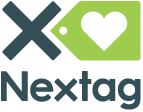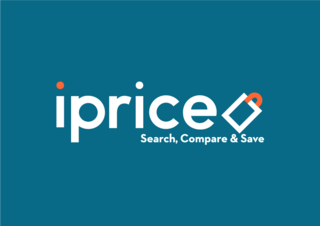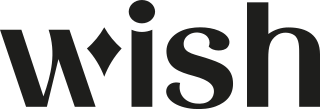Related Research Articles
Google Shopping, formerly Google Product Search, Google Products and Froogle, is a Google service created by Craig Nevill-Manning which allows users to search for products on online shopping websites and compare prices between different vendors. Google announced at its Marketing Live event in May 2019 that the new Google Shopping will integrate the existing Google Express marketplace into a revamped shopping experience. In the US, Google Shopping is accessible from the web and mobile apps, available on Android and iOS. Google Shopping is also available in France, accessible from the web only. Like its predecessor, Google Shopping is free and requires a personal Google account in order to purchase from the platform. A colored price tag icon replaces the parachute icon from Google Express.
Google AdSense is a program run by Google through which website publishers in the Google Network of content sites serve text, images, video, or interactive media advertisements that are targeted to the site content and audience. These advertisements are administered, sorted, and maintained by Google. They can generate revenue on either a per-click or per-impression basis. Google beta-tested a cost-per-action service, but discontinued it in October 2008 in favor of a DoubleClick offering. In Q1 2014, Google earned US$3.4 billion, or 22% of total revenue, through Google AdSense. AdSense is a participant in the AdChoices program, so AdSense ads typically include the triangle-shaped AdChoices icon. This program also operates on HTTP cookies. In 2021, over 38.3 million websites use AdSense.
Pay-per-click (PPC) is an internet advertising model used to drive traffic to websites, in which an advertiser pays a publisher when the ad is clicked.
Online advertising, also known as online marketing, Internet advertising, digital advertising or web advertising, is a form of marketing and advertising which uses the Internet to promote products and services to audiences and platform users. Online advertising includes email marketing, search engine marketing (SEM), social media marketing, many types of display advertising, and mobile advertising. Advertisements are increasingly being delivered via automated software systems operating across multiple websites, media services and platforms, known as programmatic advertising.
Hyperlocal is information oriented around a well-defined community with its primary focus directed toward the concerns of the population in that community. The term can be used as a noun in isolation or as a modifier of some other term. When used in isolation it refers to the emergent ecology of data, aggregators, publication mechanism and user interactions and behaviors which centre on a resident of a location and the business of being a resident. More recently, the term hyperlocal has become synonymous with the combined use of applications on mobile devices and GPS technology. Use of the term originated in 1991, in reference to local television news content.
Local search is the use of specialized Internet search engines that allow users to submit geographically constrained searches against a structured database of local business listings. Typical local search queries include not only information about "what" the site visitor is searching for but also "where" information, such as a street address, city name, postal code, or geographic coordinates like latitude and longitude. Examples of local searches include "Hong Kong hotels", "Manhattan restaurants", and "Dublin car rental". Local searches exhibit explicit or implicit local intent. A search that includes a location modifier, such as "Bellevue, WA" or "14th arrondissement", is an explicit local search. A search that references a product or service that is typically consumed locally, such as "restaurant" or "nail salon", is an implicit local search.
A product feed or product data feed is a file made up of a list of products and attributes of those products organized so that each product can be displayed, advertised or compared in a unique way. A product feed typically contains a product image, title, product identifier, marketing copy, and product attributes. But, can also contain links to rich media assets such as videos, 3D animations, brochures, product stories, product relations, and reviews, as in the case of Open Icecat, the multilingual open content catalogue.
Social shopping is a method of e-commerce where shoppers' friends become involved in the shopping experience. Social shopping attempts to use technology to mimic the social interactions found in physical malls and stores. With the rise of mobile devices, social shopping is now extending beyond the online world and into the offline world of shopping.
A comparison shopping website, sometimes called a price comparison website, price analysis tool, comparison shopping agent, shopbot, aggregator or comparison shopping engine, is a vertical search engine that shoppers use to filter and compare products based on price, features, reviews and other criteria. Most comparison shopping sites aggregate product listings from many different retailers but do not directly sell products themselves, instead earning money from affiliate marketing agreements. In the United Kingdom, these services made between £780m and £950m in revenue in 2005. Hence, E-commerce accounted for an 18.2 percent share of total business turnover in the United Kingdom in 2012. Online sales already account for 13% of the total UK economy, and its expected to increase to 15% by 2017. There is a huge contribution of comparison shopping websites in the expansion of the current E-commerce industry.
Bing Shopping is a products search and discovery service that helps save time by bringing products from multiple sellers together on a single website. It uses Bing to show product results–including photos and product details. Products can be filtered and prices compared. Purchases are completed on the seller's website.
Discovery shopping is a type of online shopping that emphasizes the browsing aspects of the shopping experience. Discovery shopping search offers shoppers guided queries for more personalized results. The goal is to recreate the experience of live shopping as a leisure activity, where the items are selected by sampling or viewing a variety of similar or related goods. This is sometimes referred to as window shopping.

Nextag was an independent price comparison service website for products, travel, and education. It started as a website where buyers and sellers could negotiate prices for computers and electronics products. From 2000, the business model focused on comparison shopping. NexTag also owned Hamburg, Germany-based Guenstiger.de. It provided functionality for tracking the historical prices of a product across various sellers.
Like.com was a price comparison service website that billed itself as a "visual search engine for products".
Content writing services is a category of work that first surfaced in the early 1990s, due to an exponential rise in online activities. Content writing services are firms, companies or group of writers that provide services such as blog writing for websites, web content writing, marketing material content, white papers, research articles, proof reading services, infographic content, social media content, press releases, product descriptions, copywriting services, proofreading and editing and many more.

Yaoota is an Egyptian search engine for products sold online in Egypt. The engine, which was referred to by Forbes as the “Egyptian Version of Google Shopping”, made headlines in October 2015 upon securing the largest Series A investment in Egypt from UAE-based private equity KBBO Group, only one year post-launch. It was also featured in a separate Forbes ranking as number 2 of the 20 Most Promising Egyptian Startups. The choice of the name Yaoota, which translates roughly to “Crazy Tomatoes”, mirrors the Egyptian culture, which relies on an all too familiar street vendor shout out in street markets that mocks the volatility of tomato and vegetable prices.
The commercialization of the Internet encompasses the creation and management of online services principally for financial gain. It typically involves the increasing monetization of network services and consumer products mediated through the varied use of Internet technologies. Common forms of Internet commercialization include e-commerce, electronic money, and advanced marketing techniques including personalized and targeted advertising. The effects of the commercialization of the Internet are controversial, with benefits that simplify daily life and repercussions that challenge personal freedoms, including surveillance capitalism and data tracking. This began with the National Science Foundation funding supercomputing center and then universities being able to develop supercomputer sites for research and academic purposes.

Offers.com is an online marketplace that connects consumers with coupons, coupon codes, product deals, and special offers from about 16,000 retailers and brands.

iPrice Group Sdn Bhd is a privately owned online shopping aggregator based in Kuala Lumpur, Malaysia. The company is an online aggregator that simplifies a consumers shopping experience by allowing them to browse for products and compare prices from various online stores. iPrice is a funding and investment product of Asia Venture Group and currently operates in eight Asian countries; namely Hong Kong, Singapore, Indonesia, Philippines, Thailand, Vietnam, Malaysia and Australia. As of May 2017, iPrice hosts a catalogue of over 110 million products from over 1000 merchants across the region, including big e-commerce sites like Lazada and Zalora.
User intent, otherwise known as query intent or search intent, is the identification and categorization of what a user online intended or wanted to find when they typed their search terms into an online web search engine for the purpose of search engine optimisation or conversion rate optimisation. Examples of user intent are fact-checking, comparison shopping or navigating to other websites.

Wish is an American online e-commerce platform for transactions between sellers and buyers. Wish was founded in 2010 by Piotr Szulczewski and Danny Zhang.
References
- ↑ David Streitfeld (Oct 2011), , NYTimes, retrieved on 8 April 2014
- ↑ NYTimes "The Dirty Little Secrets of Search" , retrieved April 8, 2014
- ↑ "BizReport "How search technology can enhance the user experience."" . Retrieved April 8, 2014.